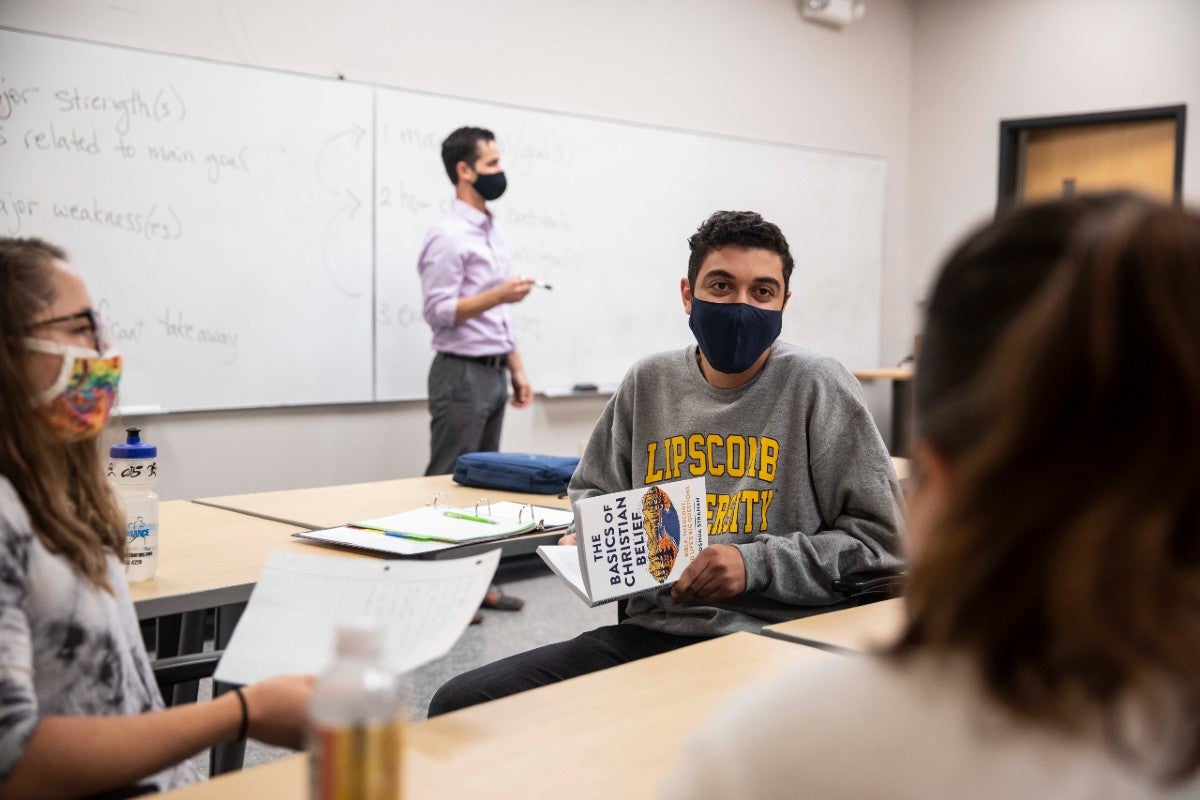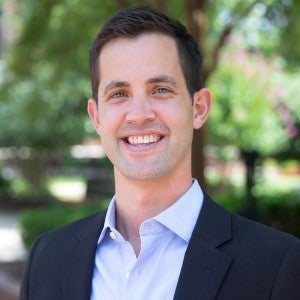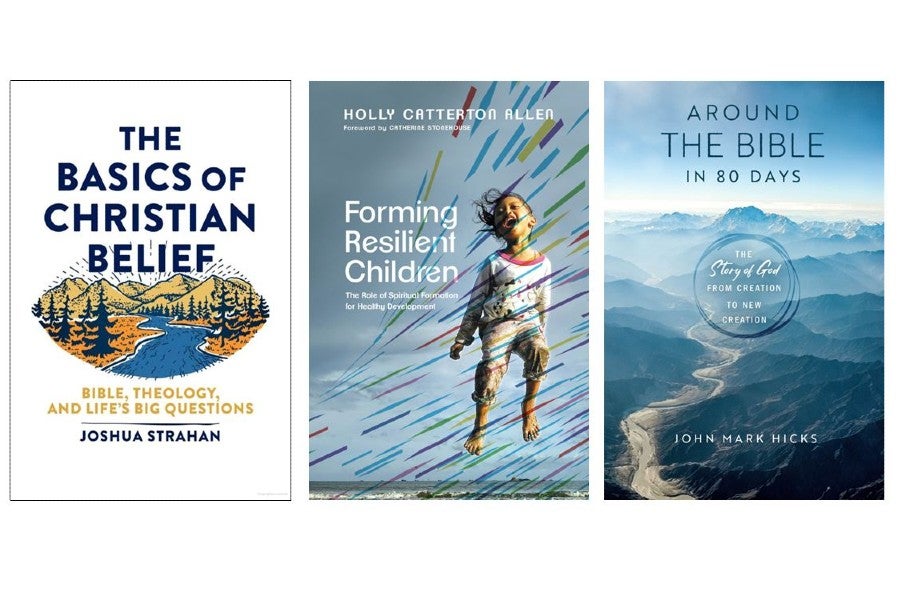Professors ‘write the book’ on faith, resilience and Scripture
Bible professors lead the way in bringing book projects into the classroom to impact students.

Bible faculty have written 19 books since 2018, including "The Basics of Belief" by associate professor Josh Strahan.
Since coming to Lipscomb in 2011, Dr. Josh Strahan (’04), associate professor in the College of Bible & Ministry, began to notice a shift in the way the younger generation viewed Christianity. It didn’t matter whether his students had gone to church their whole lives or not, it seemed that students often didn’t know the basics of Christianity and why those basics matter.

Josh Strahan
His students’ demonstration of what sociologists call moralistic therapeutic deism, or the watering down of Christianity into a general moral wishful thinking, spurred him to write his book The Basics of Christian Belief: Bible, Theology and Life’s Big Questions, which was released in 2020 and is now used as a textbook in Lipscomb’s required Bible courses.
The story behind Strahan’s book is just one way that Lipscomb students and Lipscomb faculty authors have fueled each other in a reciprocal relationship that has spawned 19 books on faith, spirituality, the Bible and the Church in just the past five years.
“We encourage and expect our professors to write scholarly works, because it cannot help but force you to consider new things and rethink your class presentations,” said College of Bible & Ministry Dean Dr. Leonard Allen, author of Poured Out: The Spirit of God Empowering the Mission of God. “I think it greatly enhances what we can do for students.”
Using his own book in his courses makes class discussions more immediately relevant, said Strahan. “Students share what they find compelling, and they get a chance to challenge ideas, which is meaningful since the author is right there in the room,” he said.

Holly Allen
Dr. Holly Allen, formerly a professor of Family Science and Christian Ministry, is now a retired adjunct who still teaches two classes shored up by a career researching educational psychology, intergenerational Christian formation, and children’s and family studies.
Upon arriving at Lipscomb eight years ago, she began exploring academic literature on resilience in children in order to revamp the Nurturing Spiritual Development course into a service-learning course where students had an opportunity to work with children who had suffered trauma.
In delving into studies on resilience in children who suffered trauma, poverty or relocation as a refugee, she discovered that a primary thread running through them all was the conclusion that some type of spirituality helped protect children from the ill effects of trauma.
That realization sparked her book 2021 Forming Resilient Children: The Role of Spiritual Formation as Healthy Development, which gathers much of the resiliency research she was reading into one source for her students.
Now she uses the book as a textbook in her course using a “flipped classroom” model, where students read chapters from her book before arriving in class. It “has brought the class alive,” Allen says, as she now uses class time as more of a hands-on laboratory.
Students do role-playing and practice various methods for enhancing children’s spirituality such as: walking a labyrinth, participating in a Godly Play story, writing a letter to God, praying in color, drawing a picture of God and reading children's books and engaging with the question, "Who are you in this story?"
Her most well-known work, Intergenerational Christian Formation: Bringing the Whole Church Together in Ministry, Community, and Worship, published in 2012 but due for a revision by 2023, also boosts engaging class discussion and students’ understanding of how they can maximize their role in church congregations, Allen said.
“Students are keenly interested in how church leadership can look different. By the time they get to the chapter on intergenerational leadership, they are starting to see that churches need to involve all generations, building on the unique strengths and resources of each demographic,” she said.

John Mark Hicks
Dr. John Mark Hicks, professor, is the college’s most prolific writer with six books published since 2019 and 10 books authored or co-authored by him before that. He says the nurturing relationship between students and faculty authors is definitely reciprocal.
“In teaching, I am prompted by students to think more deeply about particular ideas or justification for those ideas. That prompts me to be more focused in my studies and to search for more responsible responses. I think students propel my writing in many ways,” he said. “Doing that research and writing then informs what I do in the classroom, because now I have more informed responses that I can explore in the classroom.”
That reciprocal relationship is certainly seen in his latest book, Around the Bible in 80 Days: The Story of God from Creation to New Creation, which was sparked by his teaching of the undergraduate course called: God, Creation and New Creation.
The book’s format lays out God’s overall redemptive story from the first act of creation to the renewal of all creation in the new heaven and new earth. The book was shaped by “years of trying to walk through the story of God theologically with students,” said Hicks.
“The classroom reveals the questions that are important for students, the concerns they have, and the areas they enjoyed or topics they wanted to explore more,” he said.
“Students are sounding boards for ideas and how ideas are received and how they are heard,” said Hicks.
Or as Holly Allen says, “Writing informs my teaching, and teaching informs my writing.”
